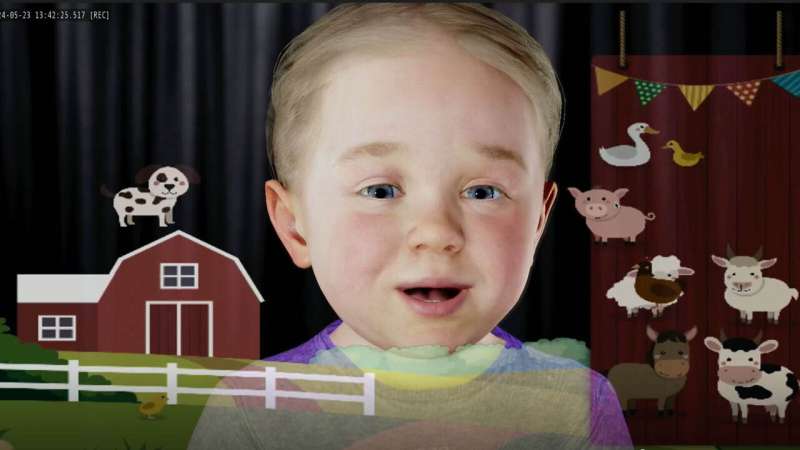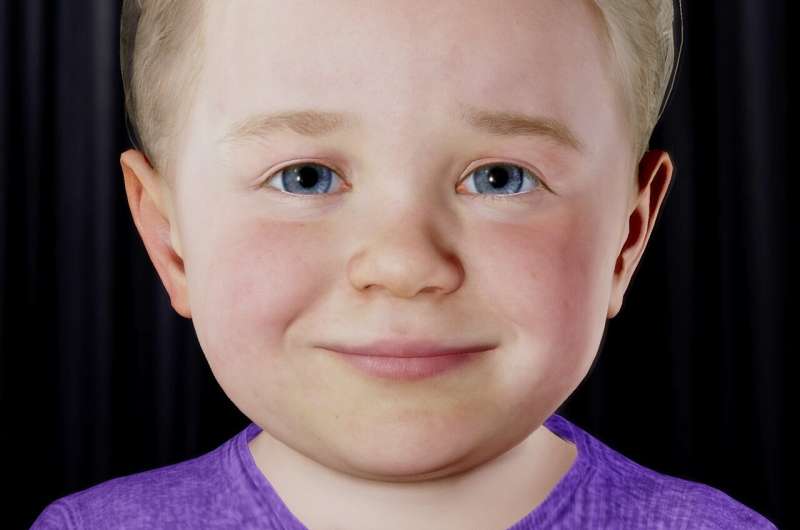This article has been reviewed according to Science X's editorial process and policies. Editors have highlighted the following attributes while ensuring the content's credibility:
fact-checked
trusted source
proofread
Digital infant features in world-first psychology research

BabyX is a hyper-realistic computer-generated simulation of a human infant. In a world first, developmental psychology researchers at the University of Auckland will use the digital child to research adults' interactions with babies.
The infant on a computer screen responds to a social partner—including their voices, gestures, and expressions—just as a human infant would, smiling, laughing, crying, or getting cross and frustrated.
The aim of the research is to look more closely at the nuances of communication between caregivers and infants.
"Decades of research has shown us that babies are incredibly responsive to even very subtle changes in where caregivers are looking, what they say and how they say it," says Professor Annette Henderson, the director of the University's Early Learning Laboratory. "However, very little is known about how changes in babies' behavior affects their caregivers' responses—we aim to close that loop."
Interacting with caregivers, infants learn about love, language, behavior and forming connections, all vital for a healthy life. BabyX lets researchers look at those interactions in ways which wouldn't be possible with a human baby.
"We can uncover how specific aspects of baby behavior influence the interactive dance with their caregivers," says Henderson. "Because human babies' behavior cannot be manipulated, answering this question has been impossible to do… until now."

As a first step, Henderson and Research Fellow Dr. Florian Bednarski are seeking 80 fathers, mothers or other primary caregivers of children aged 12 to 36 months to engage with BabyX in the lab at the University of Auckland. The caregivers will be recorded—confidentially—playing interactive digital games such as puzzles with the toddler.
BabyX was developed by Dr. Mark Sagar, the University alum who is a leader in creating virtual humans, and Soul Machines, a spinoff from the University's Auckland Bioengineering Institute.
Empowered by artificial intelligence, BabyX sees and hears via video and audio feeds, and processes the world through a simulated human brain. While BabyX was unveiled in 2017, this first research use takes place after Henderson and her team including Bednarski, Associate Professor Mele Taumoepeau (Victoria University of Wellington) and Sagar (Soul Machines) received support from the Marsden Fund of Royal Society Te Apārangi.
The ultimate aim is to help parents better care for infants.




















